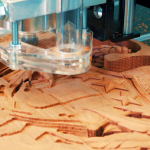Precision and efficiency are of the utmost significance in the dynamic field of industrial engineering and construction. The eventual success of undertakings is heavily dependent on these aspects. The utilization of hydraulic bolt tensioners has become a pivotal tool that has significantly transformed the procedure of fastening and bolting across a wide range of applications. Hydraulic bolt tensioners provide a multitude of advantages that significantly improve the precision, security, and efficiency of fastening procedures, owing to their cutting-edge technology and extensive capabilities.
1. Precision and Uniform Tensioning:
One of the key benefits of hydraulic bolt tensioners is their capacity to achieve accurate and consistent tensioning of bolts. The utilization of conventional torque wrenches for bolt tightening can result in uneven distribution of tension, which may lead to possible joint failures. Hydraulic tensioners are utilized to apply a consistent and controlled force to all bolts, thereby ensuring the secure fastening of joints with uniform tension.
2. Improved Bolt Load Accuracy:
Eduqation Hydraulic bolt tensioners employ pressure-controlled systems to apply the necessary load to the bolt. This particular method provides a greater level of load accuracy in comparison to torque-based tightening methods. Consequently, fasteners are secured in accordance with the specifications provided by the manufacturer, thereby mitigating the potential hazards associated with excessive or insufficient tightening.
3. Reduced Risk of Galling and Thread Damage:
The act of excessively tightening bolts using torque wrenches can result in undesirable consequences such as galling, thread damage, or potentially even bolt failure. Hydraulic bolt tensioners apply force directly to the bolt shank, thereby reducing the rotational forces that can lead to galling and thread damage. This protective measure ensures that bolts are maintained in optimal condition, thereby minimizing the need for expensive replacements.
4. Enhanced Safety for Workers:
Hydraulic bolt tensioners enhance worker safety by reducing the physical exertion needed during bolting procedures. In contrast to manual torque wrenches that require significant physical effort, hydraulic tensioners utilize hydraulic pressure to achieve tensioning, thereby minimizing the potential for musculoskeletal injuries and fatigue.
5. Speed and Efficiency:
Hydraulic bolt tensioners and pneumatic impact wrench demonstrate exceptional performance in industrial projects where time is a critical factor. These tools significantly decrease the time needed for bolting operations, as they can be quickly and easily attached and detached from bolts. The enhanced efficiency results in expedited project completion and heightened productivity.
6. Suitable for High-Strength Bolts:
When it comes to applications involving high-strength bolts, the task of achieving precise tension using torque wrenches can present certain challenges. Hydraulic bolt tensioners are highly suitable for high-strength bolts, as they effectively achieve the necessary tension without compromising the integrity of the bolts or risking fatigue failure.
7. Versatility in Application:
Hydraulic bolt tensioners are highly adaptable tools that are widely utilized in diverse industries such as construction, manufacturing, oil and gas, and power generation. These tools have the capability to be utilized across a broad spectrum of bolt sizes and types, thereby demonstrating their versatility in meeting various project specifications.
Conclusion:
In summary, hydraulic bolt tensioners are essential tools that enhance accuracy, efficiency, and safety in industrial fastening operations. The capacity to consistently maintain tension, prevent thread damage, and enhance load accuracy renders them a highly valuable resource across multiple industries. In today’s era of prioritizing precision and operational excellence, hydraulic bolt tensioners serve as a remarkable example of technological innovation. These devices have revolutionized the process of fastening in complex engineering projects.










